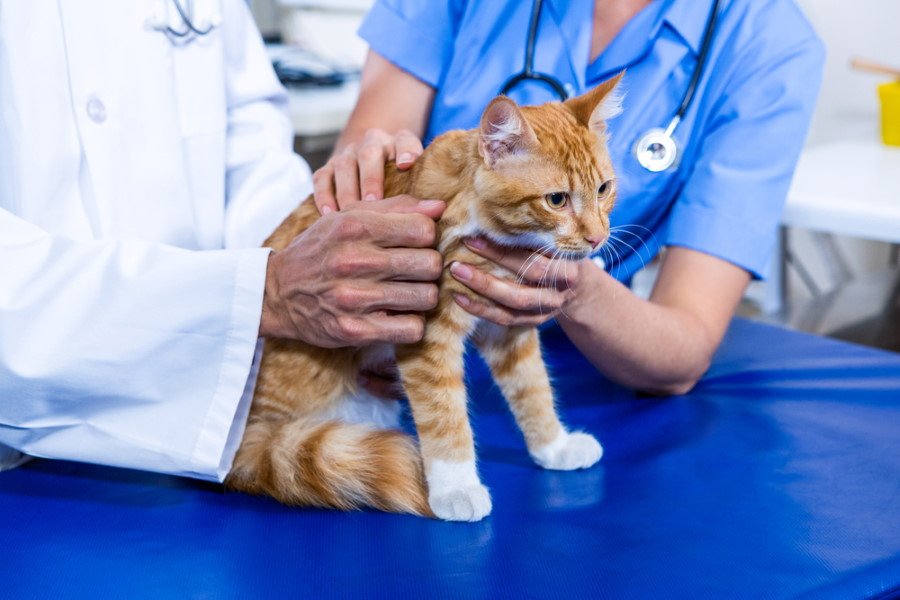Many individuals, when they hear talk of heartworms in pets, immediately think dogs are the only pets susceptible. Your question – Do I need to treat my cat for heartworm? The answer may surprise you.
Unfortunately, while it is true that dogs are heartworms’ natural hosts and the most susceptible to these parasites, cats are an atypical host but still can get heartworms and be impacted by concerns to their health should this happen.
When a person is a pet owner with both cats and dogs, they must remember the signs of heartworm, and treatment options vary from canine to feline. To ensure that you are armed with the best information possible, we have compiled a quick list of things to look for in your feline if heartworms are suspected. Additionally, preventing heartworm and transmission concerns are addressed to arm you fully to help protect your precious companion.
Differences from Dog to Cat
The biggest difference in heartworms in dogs and cats is that cats will normally have fewer and more immature heartworms. As they are not the preferred host of this parasite, cats’ internal systems tend not to allow the heartworms to reach maturity. In addition to that, due to size and other factors, fewer heartworms. While this sounds like a positive for cat owners, the issue is that even a few heartworms can cause HARD, which is an acronym for Heartworm Associated Respiratory Disease.
Yep, you guessed it from that wording that heartworms can cause respiratory concerns that have immediate impacts on your feline’s health and sometimes permanent damage if undiagnosed or not quickly attended. Remember that this is not reversible, nor something that can be healed. Unfortunately, the effects of heartworm will be a lifetime maintenance issue with your pet, depending on the level of impact. This is why timeliness in raising concerns when something out of the ordinary does occur is critical.
Signs of heartworms in a cat will also include differing symptoms due to the immaturity of these worms. Heart murmurs and irregular heartbeats will be the main veterinarian-assisted path to diagnosis. Initially, though at home, you will notice difficulty breathing, coughing episodes, or even vomiting.
These symptoms can contribute to decreased energy levels and even weight loss, which of course, opens the feline up to other concerns. Unfortunately, these symptoms will mimic allergic conditions and even asthma in felines, caused by the death of the immature worms that leave lung lesions and other vascular systems impacts in their wake. Of course, the best thing to being done as our first line of defense is prevention.
Prevention of Heartworm in Cats
There are two forms of prevention for cats: topical treatments and tablets that can be given with food applied to the skin or treated. It should be noted that before giving preventative treatments if your cat is over six years of age, they should be tested for heartworms. Some owners also ask if year-round prevention is needed in places where cold and other climate changes make mosquitos obsolete during parts o the year?
The answer is yes.
The prevention is year-long so that mosquitos that overwinter in certain regions adapt to various climates in others or come out early do not catch feline owners off guard. It should be notated that many of the prevention prescriptions can also deworm additional intestinal parasites that could impact your cat. Your veterinarian will be able to go over all the varieties to ensure the best prescription for your region, situation, and feline are prescribed.
Remember cats can be heavy lickers as they groom themselves, and also, their skin can have sensitivities to environmental and other allergens. Keep this in mind when conversing with the veterinarian regarding topical versus tablets that are ingested to ensure all considerations are met during the decision phase of your felines health management planning.
Mosquitos transmit heartworm and that larva or immature larvae, which are when these preventatives work to eliminate these parasites. It should be noted that no vaccine to prevent heartworms is available, so this prevention should be well-
documented and held to a schedule by you to remain most effective.
A couple of things of note are that kittens and mature cats are at risk, as this parasite is mosquito-transmitted, so just being in contact can introduce heartworms to their system. The American Heartworm Society recommends prevention start as early as eight weeks of age.
Additionally, heartworm for felines like in canines is administered based on weight, so regular appointments during the growing years to ensure the right prevention is prescribed will be critical for best coverage. And finally, remember this is a prescription, so a licensed veterinarian will need to be administered at the correct dosage level they approve.
Finally, your area of living and other pets in the household could be considered when bringing a cat home. Every one of the fifty states annually reports some heartworm infestations, but the hot spots within a given state can make a feline more susceptible to active infestations in the area. Not walking outside during times of higher infestations risks or keeping your pet inside can be another preventative measure you can take. Riverbeds, types of mosquitos, and humidity rate are all environmental concerns that can impact heartworms; infestation rate.
Additionally, dogs are heartworms’ natural hosts and other breeds of canines like foxes, coyotes, and wolves. If you have a dog in your household that becomes infected, transmission to your feline could be a higher risk. Heavy mosquito populations that serve as the transmission vehicle, mixed with high contact with canine populations, could pose the biggest risk and make it necessary to ensure prevention as early as possible and diligence in spotting warning signs of infection with your feline. Knowing the risks and building the safest plan for your pet is part of a solid all-around prevention stance you can take to protect this furry family member.
Symptoms of Heartworm in Cats
Here is the scary news on heartworm in cats – the first signs can come too late. Because heartworm symptoms present in their systems mimic asthma-like symptoms, food allergies, and periodic vomiting, it can be misdiagnosed. Or worst case, there have been situations where a sudden collapse or death will warrant a diagnosis way too late for your feline. Like with so much, it can not be said enough that slight changes in diet, bathroom habits, eating, or energy level should be carefully monitored.
As a small child, you are your feline’s best advocate for something not being right. Getting help is critical to ensuring treatment, so do not fret too long that you might be overreacting. Some veterinarians do online visits and help with a diagnosis before you need to make an office visit. Well-documented symptoms, length of time since things have changed, and other details you deliver to them in your appointment will provide a timely and life-altering diagnosis to start the treatment early and get your cat on the road to recovery.
Treatments of Heartworm in Cats
Detection in cats can be tricky, but veterinarians may use an antibody test to show exposure to heartworm or even x-rays to help with the diagnosis. Once you are aware of a heartworm diagnosis, treatment is crucial. Remember where a dog might be able to withstand 30 or more heartworms; even one or two in a cat can be a sign of major concern.
Again for the bad news – currently, no treatment can rid cats safely of heartworms. The goal will be you and your veterinarian stabilizing and developing a long-term care plan for a feline living with a heartworm-positive diagnosis. If they show respiratory concerns then x-rays, and some prednisolone-style drugs to help with inflammation will be part of the plan.
Additionally, surgery to remove the heartworms, fluids to support them, and other hospitalization level treatments can be necessary in serve cases. It must be emphasized that a cat now exposed should never
miss monthly prevention treatments.
New infections are prevented by these prescriptions and will go a long way toward stabilizing your cat for long life. So there it is – the good, bad, and ugly of heartworm in cats. Yes, it can happen and, unfortunately, can be more dangerous in cats than dogs in many cases. A few worms can cause lifelong respiratory and other concerns in your feline.
By avoiding wet, marshy, or other mosquito-infested places with your feline, administering monthly preventative treatments from your veterinarian and proper monitoring can also be something you prevent or catch early should your feline fall victim to this parasite. Stay vigilant, and remember you are not only your felines’ best companion but their biggest ally in sickness and health.
As in everything with the care and keeping of a cat, the regular monitoring of your pet and documenting to professional changes in diet, exercise, activity, bodily output such as diarrhea, vomiting, or the like can help turn the tide of a diagnosis through quick treatment and planning. You have a big responsibility to that feline you brought into your home, and we hope that this information proves beneficial in their health and safety.

Jonathon Hyjek is an entrepreneur and cat-lover. He is married to Joy and they share their home with their 2 feline-friends, Franklin & Ollie. Jonathon is a self-admitted “Crazy Cat Guy”. He started this website because of his love for his own cats and their well-being.

